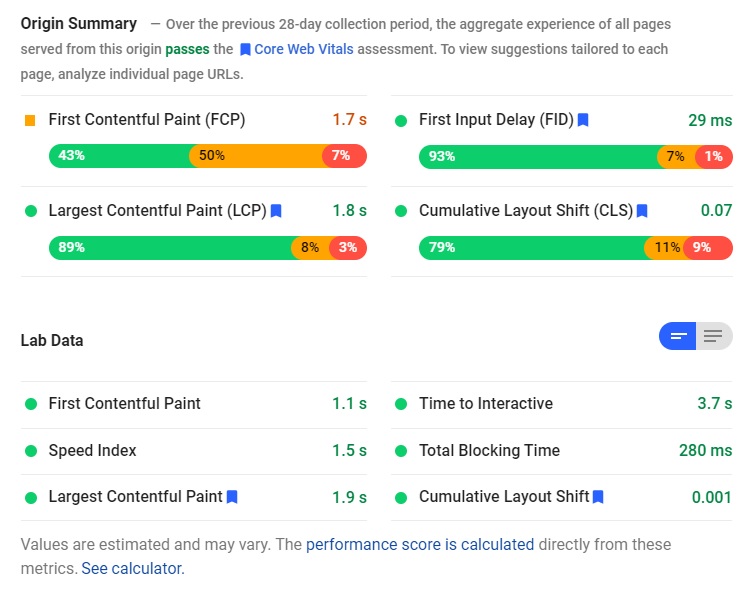Published by Jeremy. Last Updated on September 12, 2023.
Disclaimer: This Week in Blogging uses demographic data, email opt-ins, and affiliate links to operate this site. Please review our Terms and Conditions and Privacy Policy.
It is never a fun feeling in blogging to find out that you have a copycat. It has happened to me many times over the years, and even to this day I still always have a moment of panic over all of the what-ifs that could happen.
Most end up resolving themselves just fine, but some become a persistent issue that I simply have to recognize become a part of doing business.
So in this one, we thought it'd be fun to discuss the topic of copycat bloggers more and share some things you should (and shouldn't) do when someone is imitating your business.
That said, we should also note that you may have two kinds of copycats to watch out for, namely, one that follows your lead and builds an eerily similar brand as your own and another that steals content outright. While we call both of these copycats insofar as the word's connotations allow, some approaches below may best apply only to one case over the other.
Do Be Friendly, Or Don't Engage at All

The first thing you need to do when you find out you have a copycat is determine how you will treat it. In general, there are often two schools of thought on the subject, which will likely vary based on the degree they are copying, how often you may have to see them in public, and, of course, your tolerance for being friendly.
On one hand, you may take a “we are all in this together” approach and try to be friendly with any and all creators who may start up in your space. This may be worth considering if the person is closely related to your niche, perhaps lives in your area or may show up at events you attend, isn't overtly stealing from you, and there may be long-term benefits to collaboration. You may end up making a friend, build a close business relationship, and get more out of it in the long run over simply writing them off.
After all, no one really can own a niche, so it shouldn't be a surprise when others pop up who are attempting to feature the same topic as you and just so happen to be topically a little too close for comfort (this is not a matter of if, but when). In this instance, attempting to be friendly can pay off way more in the long run if the situation allows.
- If you're on the flip side of this, are the one opening up a site that may be a bit too similar to someone else who is established, and you don't want to be viewed as a copycat when you have otherwise genuine intentions, take the initiative and reach out early on. Although I cannot say my success rate on this side of the spectrum is 100%, I've built a number of excellent business relationships and friendships over the years simply by being the first to reach out and introduce myself as a new blogger in the space looking to be friendly over being competitors.
Of course, that option may only be available to a certain point, and copycats who are full-on building a brand doing the same things you do or, worse, outright stealing from you perhaps do not warrant such a courtesy. In this case, the best option is not to engage unless the situation requires it (more on that later). This means no commenting on their content, no giving them free advice, no talking about them behind their back, and more or less no public acknowledgment that they exist in your space at all.
Is this petty? Perhaps, but as mentioned above, it all depends on what degree of a copycat they are.
As this has happened to me quite a bit, you'll likely find out that answer rather quickly. I've met people I thought created a brand that copied mine with whom I later became close friends. I once had scheduled a meeting with a creator after they had stolen a photo from me (and made amends), only to discover they did it again just hours before we were supposed to meet- I burnt that whole damn bridge to the ground. I've also had people who would pretend to be friendly, continually private message me for advice, and sometimes even copy what I do as soon just hours later (down to the same exact subtopics, like items ordered from a menu), all without the courtesy of a mention.
As you can see, the scope and severity of “copying” can vary significantly.
It doesn't take too long in these instances to figure out who is worth having a beer with and who should be added to your “don't engage with” list, but when in doubt, I'd rather be wrong trying to be friendly and get burned too many times than making the reverse mistake. If you're going to burn the bridge, you have to be absolutely certain you want to do it.
Do Check Their Site and Channels for Stolen Content
Now, let's say being friendly doesn't work. What next? If your copycat is the worst kind that may outright steal content from you, it is time to investigate- particularly checking their site and/or social media profiles for stolen content.
Over the years, I've found many bloggers who steal content from me, so much so that I have a regular rotation of sites that I read if only just to scan to see if (or rather, when) my content will appear.
Of course, the recourse you have here can vary. When a copycat is simply doing what you do and hitting a little too close to home, you really have no case other than bite your tongue. But if you find plagiarized text, stolen images, or more, there are several ways you can go about remedying this, depending on how aggressive you want to be:
- If you wish to be cordial, you could reach out and ask for a backlink credit. Again, being friendly is always worth the first step, and those who do not reciprocate are liable to steal again, anyway.
- If you wish to be compensated, you could send over licensing fees. 3rd parties, like Copytrack or others, may also be alternative options for a more formal legal route- particularly with media.
- If you want the image removed completely, sending their host a DMCA notice is the way to go.
- If you want to be especially petty, sending a DMCA notice to Google, their ad network, or others may bring about action as well. Being removed from an ad network for copyright infringement is a big ouch, after all.
No matter what you do, be sure to take screenshots the image/content as visible on their site to have for your records. In many cases, direct contact may also result in them simply removing your content, brushing you off, and you will be left without further recourse without any documentation.
Do Not Start Copying Their Style
On the flip side, one of the worst things you can do when you have a copycat blogger is to take ideas from them in reverse. This could be in the form of new content, style, or more when you see things start working out for them in a way you may not be doing yourself.
I witnessed this on one of my sites when a creator in the space went viral on an undisclosed social network. What happened next was that other creators in the space copied them to try and replicate the success so much so that the format, content, copy, and even some font and style choices were, for the point of argument, virtually identical- all within an incredibly brief period after the first post (think days, not months).
Some succeeded in repeating the viral, others did not, but for those outside observing the space from a distance, it looked like a bunch of creators were copying each other. Don't do that!
There is, of course, a significant difference between seeing something broad work in the industry (e.g. “it seems like Reels with text and voiceover are paying off now”), as opposed to copying choices down to the topic or, in the above case, literal aesthetic design. But ultimately, the major reason for this is you simply don't know who is out there watching and what they will think when creators try to one-up each other.
What you may see as getting an edge in your space doing something that “works” may be looked at differently by outside observers.
After the incident mentioned above occurred, several people within the media space commented on it to me, completely unprovoked on my end, mind you, all with the same opinion- it was incredibly tacky and made everyone involved look bad. I just smiled, bit my tongue, and tried to change the topic as best I could. Suffice it to say, people talk much more than you may think.
Do Things That Cannot Be Easily Copied
Ultimately, the best thing you can do when you have a copycat is simply put your head down, stay in your lane, and keep on producing epic content as always- you are indeed in control of your success when it is all said and done. But if you are concerned that they may continue to copy, start thinking outside the box about how you can create content that is not easily recreated to begin with.
Get a certification that is hard, expensive, or time-consuming to pursue. Create a new series that requires significant research or investment. Make sure you're on the top of your SEO game with a fast site and accurate keyword usage. Do things that cannot be easily replicated simply because someone has a car, is nearby, and has $20 in their wallet. I could go on.
Being unique and true to your voice has always been a cornerstone of success in blogging. As others move into your space and niches become increasingly congested, it is up to you to think of ways you can continue to stay unique and, perhaps, make it harder for anyone else to follow your lead.
And if they do continue to copy, well, it'll be all the more evident to those who are paying attention. A copycat going out and buying the same slice of pizza the day after you may be a coincidence. Them doing it ten more times may be a pattern. But if they launch a new service, get the same multi-year certification, or do something else that is more involved- it becomes much more obvious what is going on.
So to my copycat who went out and bought one of those dumb 360-degree cameras just days after I did when they were starting to become popular, recreating some of the same exact videos shot-for-shot, I take a little bit of joy that you wasted that money just as much as I did. Yes, I saw it. So did everyone else. And yes, people still bring it up.
Finally, Simply Wait it Out
There is one final idea you may want to consider when it comes to having a copycat blogger, and that is simply waiting it out.
The truth is that most would-be bloggers give up when they realize just how difficult the industry is. Some may continue to find success on a single social network. Others may give up entirely. But at the end of the day, most copycat bloggers simply fizzle out when they realize blogging is not for them or they move on to the next new and shiny trend that has nothing to do with you (or, if a copycat on social, we all know that one big algorithm change is all it takes to tank a profile!).
Truly, outlasting a copycat is often simply a matter of time and patience, and that is all there is to it. While this is not a guarantee for all possible copycats, it is the likely scenario for a great deal all the same.
Overall, there are a number of ways to go about dealing with a copycat on your blog, and it really all depends on the nature of how they're copying you, whether you want to be friendly or vengeful, and, of course, whether they're actually impacting you at all in the process, too.
While there is really no right or wrong way to go about it (well, perhaps the nuclear option is a wrong way the vast majority of the time), you still need to be aware of what is going on all the same. Only then can you assess the situation and decide what, if anything, is the right step forward.
Have you ever had a copycat on your blog? How did it impact your business and what did you do? Comment below to share!
Join This Week in Blogging Today
Join This Week in Blogging to receive our newsletter with blogging news, expert tips and advice, product reviews, giveaways, and more. New editions each Tuesday!
Can't wait til Tuesday? Check out our Latest Edition here!
Upgrade Your Blog to Improve Performance
Check out more of our favorite blogging products and services we use to run our sites at the previous link!
How to Build a Better Blog
Looking for advice on how to improve your blog? We've got a number of articles around site optimization, SEO, and more that you may find valuable. Check out some of the following!












